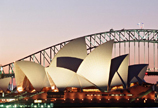Shrinking margins ahead for brokerages
(Agencies) Updated: 2014-12-25 09:48Increasing use of credit means margin finance and securities lending may contribute about 20 percent of brokerages' revenue this year, according to a UBS report last month. That compares with about 12 percent in 2013, Securities Association of China data show.
The 19 brokerages' combined net income may grow to 39 billion yuan this year, the most since 2007, from last year's 24.1 billion yuan.
Those earnings-and the underlying stock rally-may be in question in an economy projected to grow 7 percent in 2015, down from this year's estimated 7.4 percent, according to a Bloomberg survey of 51 analysts. Slumping home sales and a credit crunch are among the risks faced by the world's second-largest economy, according to economists surveyed by Bloomberg.
In a note on Wednesday, Bank of Communications Co strategist Hao Hong likened China's stock surge to the market volatility in the United States documented in Robert Shiller's 2000 book Irrational Exuberance, which was written in the wake of the bubble in Internet stocks.
"It is like deja vu-in a foreign place and a different language," Hong wrote, in reference to China's rally.
Some Chinese brokerages seem to be more optimistic. Haitong Securities said on Sunday that it is planning a private share sale in Hong Kong to raise HK$29.9 billion ($3.9 billion), about 60 percent of which will be used to develop its short-selling and margin-financing business.
Futures signal weaker conditions
Shares closed down on Wednesday, with futures trade appearing to show that support for mainland stocks may be losing traction.
China CSI300 stock index futures for January fell 3.3 percent, to 3,259.2 points, which was still 29.4 points above the current value of the underlying index but down nearly 7 percent over the past three trading days. Other futures contracts also declined.
The CSI300 index, which covers the largest listed companies in Shanghai and Shenzhen, slid by 2.8 percent to 3,230.39 points, while the benchmark Shanghai Composite Index lost 1.9 percent to end at 2,972.53 points, dropping below 3,000-considered a sentiment support level-for the first time since Dec 17.
Among the most active stocks in Shanghai were GD Power Development Co Ltd, up 0.9 percent to 4.53 yuan (74 cents); Bank Of China Ltd, down 4 percent to 3.57 yuan and China Minsheng Banking Corp Ltd, down 1.8 percent to 10.31 yuan.
In Shenzhen, TCL Corp was down 3.8 percent to 3.82 yuan; BOE Technology Group Co Ltd fell 3.3 percent to 3.23 yuan and Changjiang Securities Co Ltd was down 9 percent to 14.86 yuan. They were among the most actively traded issues on the exchange.
The total volume of A shares traded in Shanghai was 37.6 billion shares, while the volume in Shenzhen was 15.4 billion shares.
- China ahead of schedule with 2014 energy targets
- Chinese goods most attractive in Lebanon during holidays
- Yunfu chisels new shape for stone industry
- Surging refinery capacity creates tempest in a teapot
- Ruling set to burn US solar firms
- UnionPay inches ahead of Visa, MasterCard in South Korea
- GM imports may reduce corn prices
- Private bank trial poised for expansion during 2015

















